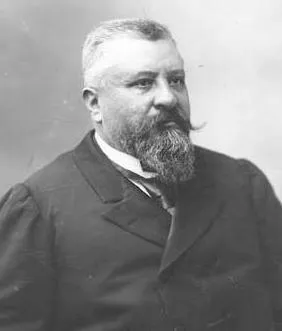
Full Name: Charles Dupuy
Birth Year: 1851
Nationality: French
Profession: Academic and Politician
Position: 60th Prime Minister of France
Death Year: 1923
1851 – Charles Dupuy, French academic and politician, 60th Prime Minister of France (d. 1923)
In the turbulent political landscape of 19th century France, Charles Dupuy emerged as a significant figure whose life mirrored the complexities of the era. Born in 1851, he entered a world steeped in upheaval and transformation a world still reeling from the aftermath of revolutions and wars that defined a generation.
Growing up, Dupuy witnessed firsthand the shifting tides of governance and social order. Perhaps his early years were influenced by his surroundings; after all, France was undergoing profound changes as it transitioned from monarchy to republic. He immersed himself in academia, establishing a reputation as an intellectual force within educational circles. However, despite his scholarly pursuits, politics beckoned him with its alluring promise of influence and power.
By the time he reached adulthood, Dupuy had forged strong connections within political circles. In many ways, his journey into politics was not just a career choice but an obligation; one could argue that he felt compelled to contribute to shaping France’s future amid its ongoing struggles for stability. His academic background provided him with unique insights into governance he didn’t merely participate in politics; he analyzed it through a scholar's lens.
In 1902, Dupuy’s political acumen led him to become Minister of Public Instruction an appointment underscoring his commitment to education reform and public policy development. During this period, he advocated for progressive educational reforms aimed at modernizing French schools and expanding access for all citizens. Yet this role was not without challenges; resistance emerged from traditionalists who viewed these changes as threats to established norms.
Despite this pushback from conservative factions within government institutions, Dupuy remained steadfast in his mission. Ironically, it was during these years that he cultivated relationships across party lines a skill that would prove invaluable later in his career when navigating complex political alliances.
His growing prominence caught the attention of many politicians eager to capitalize on his influence. By 1906, Dupuy ascended to an even more significant role: Prime Minister of France the highest office one could hold in government! The nation stood at a crossroads once again; tensions were escalating over issues ranging from labor rights to colonial policies.
Difficult decisions loomed ahead for Dupuy as Prime Minister a position rife with expectations yet fraught with perilous choices. One might speculate that perhaps no other leader faced such formidable challenges than those presented during his tenure: labor strikes surged across industries demanding better wages while colonial conflicts simmered in far-off lands like Algeria and Indochina.
The weight upon Dupuy's shoulders grew heavier by each passing day! He sought diplomatic solutions whenever possible but swift action was often required amidst mounting public unrest! Amidst this chaos rose another key issue: anti-Semitic sentiments began surfacing throughout society distrust brewed among factions leading some individuals towards extremist ideologies against minorities!
This period marked both triumphs and trials for Charles Dupuy the balance between diplomacy versus decisive action remained precarious throughout much of his term! In retrospect...was there ever really a winning strategy? Historians recount how various stakeholders constantly pushed their agendas while demanding accountability from leaders like him!
As 1909 rolled around a year filled with uncertainty regarding economic policies Dupuy made headlines once again: Despite pressure building around financial regulations affecting banks nationwide...he chose pragmatism over populism! His administration proposed sweeping reforms aiming at stabilizing inflation rates while appeasing dissatisfied citizenry frustrated by rising costs living expenses...
This decision bore fruit only months later when economic indicators began reflecting positive growth trends yet stirred controversies among opposition parties who argued about prioritization risks associated spending cuts implemented earlier upon taking office!
Amazingly enough though the prime minister navigated these storms well and successfully turned public opinion favorably toward governmental efforts despite internal squabbles plaguing cabinet meetings along every step taken forward...
Yet behind closed doors lingered whispers questioning whether such tactics would sustain momentum long-term given fragile coalition dynamics surrounding specific interest groups seeking their own advantages rather than collective good as is often found prevalent across most democracies worldwide today!
The Downfall
The tide shifted dramatically following World War I when national sentiment veered dangerously towards isolationism amidst societal fatigue stemming war losses felt deeply throughout civilian life post-conflict resurgence beginning decade earlier... Meanwhile political rivals sharpened daggers aimed directly targeting vulnerabilities exposed openly through Dupuys leadership style… As time marched forward increasingly undercutting stability within governments dedicated preserving unity founded upon shared values intact since first establishing democratic systems back mid-century…



